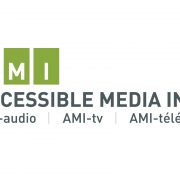Tell It Like It Is: Facilitating Sexual Health and Wellness Education for Diverse Learners By Kristyn White
Sexual health and wellness are vital aspects of everyone’s life, yet for people with disabilities, these topics are often shrouded in stigma and misunderstanding. At Creative Options Regina, we’ve embraced the challenge of creating a safe, supportive, and inclusive space where individuals can learn about relationships, consent, and their rights. Through the Tell It Like It Is program, we’ve seen the transformative power of education in helping people make informed decisions about their sexuality and relationships.
A Personal Journey to Comfort and Confidence
Growing up, I never imagined I’d be teaching a sexual health curriculum. Discussions about sexuality in my own life were rare and uncomfortable, so when I began my career in caregiving, I wasn’t prepared for the role sexuality would play in supporting others.
Early in my career, I struggled to navigate these conversations, often feeling unsure of how to approach them. It wasn’t until I became part of Creative Options Regina’s Culture of Gentleness—and began facilitating Tell It Like It Is—that I found my footing. I realized that discomfort is normal and that the key is creating a safe space for both educators and learners to grow together.
What Is Tell It Like It Is?
Tell It Like It Is is a comprehensive sexual health and wellness curriculum designed to address the unique needs of people with disabilities. Developed through a partnership between Creative Options Regina, Inclusion Saskatchewan, and Saskatoon Sexual Health, the program emphasizes inclusivity, accessibility, and empowerment.
The curriculum covers topics such as:
- Consent
- Healthy relationships
- Online safety
- Safe sex practices
- Boundaries
- Reproductive health
A key element of the program is its multimodal approach, which caters to diverse learning styles. Whether through role-playing, videos, hands-on demonstrations, or open discussions, the program ensures that everyone can engage in a way that works best for them.
Breaking Down Stigma and Myths
One of the most significant barriers people with disabilities face when it comes to sexual health is the stigma and misinformation that surrounds them. Some common myths include:
- People with disabilities are asexual or uninterested in relationships.
- They cannot or should not consent.
- Teaching sexual health leads to promiscuity or risky behavior.
These misconceptions can lead to overprotection, lack of access to education, and, in turn, greater vulnerability to exploitation or harm. Research shows, however, that providing accurate information delays sexual debut and reduces risky behavior.
By addressing these myths head-on, Tell It Like It Is helps individuals make informed choices, advocate for their needs, and embrace their sexuality with confidence.
Barriers to Sexual Health Education
People with disabilities often face unique barriers in accessing sexual health education, including:
- Limited accessibility: Many resources are text-heavy or lack visuals, making them inaccessible.
- Lack of professional training: Caregivers and educators often feel ill-equipped to discuss these topics.
- Negative societal perceptions: Stigma and ableism discourage open conversations.
- Inconsistent support: Many individuals lack the family or peer support needed to explore their sexuality safely.
By offering free, accessible resources and empowering caregivers to engage in these conversations, Tell It Like It Is aims to overcome these barriers.
Empowering Educators and Learners
One of the program’s guiding principles is that you don’t need to be an expert to facilitate meaningful conversations about sexual health. Instead, having an open mind and a willingness to learn alongside participants is key.
Some of the program’s best moments come when participants teach us something new or when we explore answers together. By focusing on shared learning and mutual respect, we create an environment where everyone feels valued and heard.
The Impact of Tell It Like It Is
Through the program, we’ve seen individuals gain critical knowledge that has improved their lives:
- Confidence: Participants feel more comfortable discussing topics they once found intimidating.
- Safety: Practical lessons on consent and online safety have helped prevent harmful situations.
- Empowerment: People have embraced their rights to explore relationships and intimacy on their own terms.
One participant shared how learning about sexual health helped her heal from past abuse and feel safer in her relationships. Another celebrated their newfound confidence in online dating. These stories remind us why this work is so important.
Creating a Culture of Respect
At the heart of Tell It Like It Is is the belief that everyone deserves to feel safe, valued, and empowered to make their own choices. While it’s natural for caregivers to feel protective, it’s equally important to support individuals in living the lives they want—even if those choices differ from our own values.
By fostering open dialogue, respecting boundaries, and providing evidence-based education, we can break down barriers and build a more inclusive, supportive community.
Get Involved
If you’re interested in facilitating Tell It Like It Is or want to access its free resources, visit our website or reach out to me via email. Together, we can ensure that everyone has the tools and knowledge they need to thrive.
Closing Thoughts
Talking about sexuality can be challenging, but it’s also essential. With the right support and education, we can empower people with disabilities to navigate their relationships with confidence and dignity.
As one participant so aptly put it: “Sexual health is a part of life—so let’s talk about it!”























